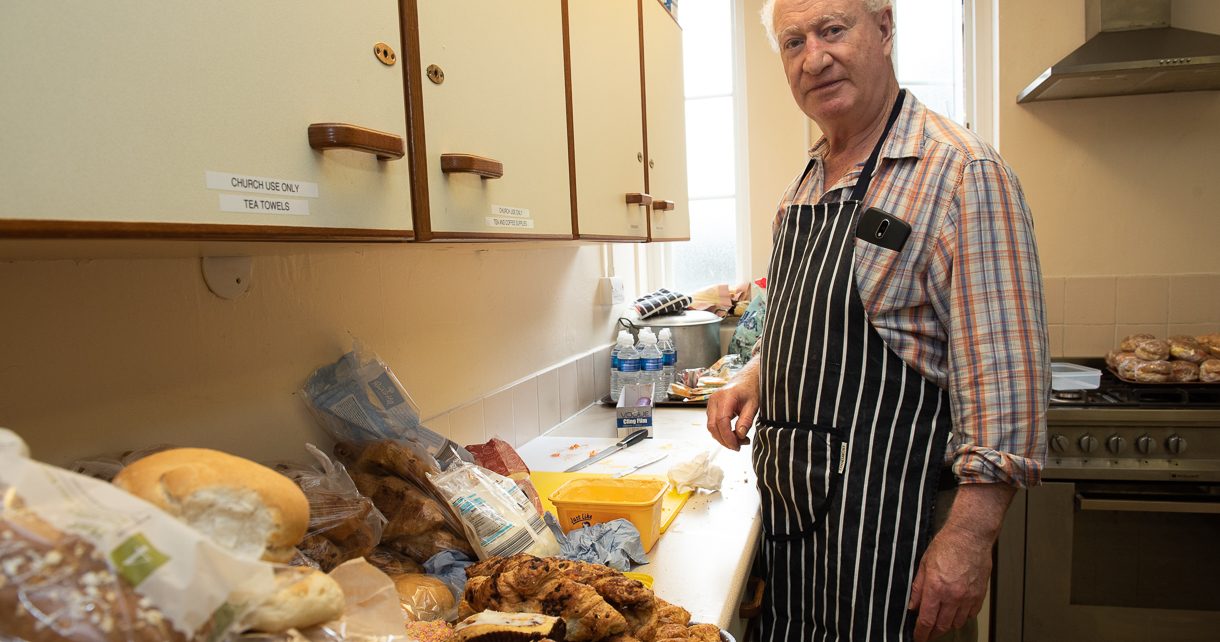Cuts by a new name
After months of criticism from all sides, Chancellor George Osborne finally caved in on tax credits in his autumn statement last week, pledging to reverse cuts that would see Britain’s poorest working families more than £1000 worse off every year.
Newspapers hailed the move a u-turn – while the Telegraph wrongly noted that Osborne had “ushered in the end of austerity”.
But halting cuts to tax credits, which were due to hit in April, may have been the only good news for working people who will still suffer under another five years of austerity. That’s because many of these families who had braced themselves for tax credit cuts will still feel the same pain – the only difference is that the cuts will be felt later rather than now.
“There was always going to be a phasing out of tax credits as people moved over to Universal Credit, the government’s flagship programme that rolls six benefits into one,” Unite researcher Sian Errington explained.
“What’s happening now is that instead of cutting tax credits immediately, the government is cutting Universal Credit. As people move off tax credits and into Universal Credit, which will be slowly rolled out over the next few years, many will lose out quite dramatically.”
The Institute for Fiscal Studies (IFS) estimated just how brutally millions of families will be hit.
Working families will lose
Once Universal Credit is introduced, 2.6m working families will lose an average of ÂŁ1,600 every year. While nearly 2m working families stand to gain ÂŁ1,400 a year from the introduction of UC, the hardest hit will be the 1.2m non-working families who will lose ÂŁ2,500 annually.
But Errington warned that beyond cuts in autumn statement last week, the Welfare Reform Bill, which is currently going through the House of Lords and is anticipated to be passed, will also result in benefit cuts from as early as April 2017.
These changes include a significant reduction in the benefit cap from ÂŁ26,000 a year to ÂŁ23,000 year in London and ÂŁ20,000 outside the capital.
Errington noted that some groups will lose out more from changes to benefits than others.
“Those living in expensive areas – urban areas predominantly – will be hit hard by the benefit cap cut, and have already been hit by cuts in housing benefit,” she said. “Low-paid households will lose out by the introduction of Universal Credit in particular.”
Errington pointed to evidence suggesting that the biggest losers will be single mothers.
“Women are overrepresented in amongst lower-paid occupations in the labour market, and they’re more likely to be lone parents,” she noted.
“So these women are more likely to be claiming housing benefit, they’re more likely to be claiming tax credits and they’re also more likely to work in occupations affected by austerity cuts such as public services.”
Young people will also be struggling under changes to benefits because many will be denied access, Errington added. For example, automatic housing benefit will be withdrawn for young people aged 18 to 21.
Perhaps it is a sign of the times then, that Liverpool recently opened a food bank exclusively for young people. Liverpool’s deputy mayor Nick Small, noted that the city suffers from high levels of food poverty resulting from draconian benefit sanctions, which disproportionately affect young adults.
Deadly poverty
And according to Errington, sanctions are set to get worse under the present government. While sanctions now only apply to those not in work, the DWP is piloting sanctions for the lowest paid workers – a chilling development in a sanctions regime that has already thrown so many people into deep and often deadly poverty.
In-work sanctions would mean that if struggling workers on low pay earn below a certain threshold and claiming Universal Credit will be made to sign a â€claimant contract’ pledging to try and increase their earnings, for example, by working more hours. If they don’t meet their â€obligations’ they face being sanctioned, where benefits are stopped.
“It will be very difficult for many people to increase their per hour earnings, so this would basically mean taking on more hours,” Errington explained. “But where’s the support for this? The government has been very evasive on what additional help their will be to enable low-paid workers to earn more – and there are no obligations on employers.”
While the details on in-work sanctions aren’t yet clear, Errington noted that we can probably expect the programme to be put in place for all Universal Credit claimants once the pilot programme, which work and pensions secretary Iain Duncan Smith confirmed was now being conducted in parts of the North-West, is complete.
Unite assistant general secretary Steve Turner welcomed the government being forced to change their plans on tax credit cuts but condemned the additional cuts and changes to benefits, which he said would throw millions more into poverty.
“The government’s climb down over tax credit cuts is welcome – it means millions of households will not be losing on average over £1,000 a year in April,” he said. “It shows that campaigning, from the grassroots up to the Labour leadership, works. Now we need to focus on the next fight.
“They still want to make an eye-watering £12bn of cuts to benefits,” Turner added. “The suffering of millions of working people under the previous coalition government is only the beginning.
“By 2020, food banks could be a permanent feature of society, with poverty and income inequality growing, with children suffering the most.
“Make no mistake – this government is not interested fixing the country’s finances. This is only a smokescreen so it can pursue an ideology that seeks to completely dismantle our social security system.”
 Like
Like Follow
Follow


